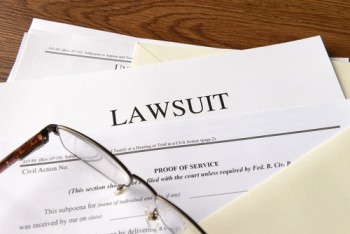Nearly 800 COVID-19 lawsuits have been filed, according to law firm's tracker

Image from Shutterstock.com.
Wondering what kind of lawsuits are being filed in connection with the COVID-19 pandemic? A lawsuit tracker has the answer.
Nearly 800 lawsuits have been filed over the novel coronavirus, and more than 230 of them dealt with prison conditions, according to tracker data, which was last updated May 4. Hunton Andrews Kurth developed the tracker with the help of a data services provider.
The Washington Post and Law.com have coverage.
After prison lawsuits, the next most popular were lawsuits involving insurance disputes, contracts and civil rights (excluding the prison claims).
The prison claims—which included inmates seeking release because of the pandemic—are beginning to plateau, according to Hunton Andrews Kurth lawyer Torsten Kracht, who spoke with the Washington Post. On the upswing are claims concerning employment, wrongful death, contracts and force majeure provisions, he said.
The lawsuits targeted defendants such as hospitals, long-term care facilities, airlines, cruise lines, fitness chains and the entertainment industry, according to the Washington Post. The most claims have been filed in New York, followed by California, Florida, Texas, Illinois, Pennsylvania and Washington.
Suits include a class action against Pennsylvania’s health department for an alleged failure to properly monitor nursing homes, a challenge to a Washington state policy that has the effect of banning group Bible studies, a class action against Ticketmaster over failure to issue refunds for postponed events, and suits against airlines for failure to give cash refunds.
Some suits may face high hurdles in states that have granted some lawsuit protection to hospitals, nursing homes and long-term facilities during the COVID-19 crisis. U.S. Senate Majority Leader Mitch McConnel, meanwhile, said a federal aid bill for state and local governments should make the money contingent on states providing liability protection to businesses and hospitals providing services during the pandemic.
Kracht told Law.com that the database is built from case coding on the cover sheet for federal and state cases. Some state data has to be entered manually because of differences in cover sheets.
Kracht acknowledged that the tracker doesn’t include all the cases that have been filed.
Hunton Andrews Kurth clients get additional data summarizing the cases, which allows clients to decide whether to read the entire case file, Kracht told Law.com.



